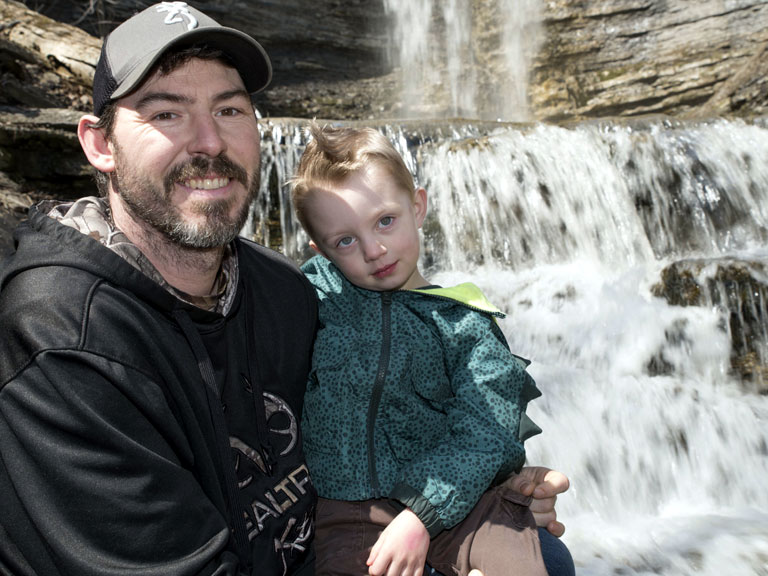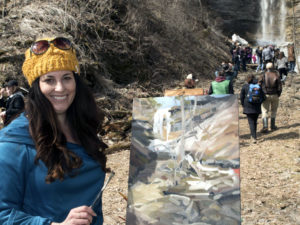County News
Attendance rises

Popular event draws large crowds on Easter weekend
Aready and adequate supply of clean water is becoming an increasingly scarce commodity in many places around the world, and even in the County it cannot be taken for granted—as evidenced by the oil spill in Picton Bay in 2017 and the widespread drought of the previous year. We are fortunate to have systems in place to prevent the situation from becoming dire, but such is not the case in many other places. The Picton Rotary Club has an ongoing project to help fund international efforts to provide clean water to communities in need. To help raise funds for these projects, the club organizes the annual County waterfall tour on the Easter weekend. The waterfalls are located on private property, and the owners permit public access only at this time. Marion Hughes, past president of the Picton Rotary Club, says the tour is now in its 11th year and was started in response to an initiative by Rotary International to fund clean water projects. “We looked around to see what we might do, and from there evolved a self-guided tour of people coming to the falls at Eastertime,” she says. “It started off slowly, but each year we’ve had more and more visitors.”

Artist Michelle Reid does some plein air painting at Cape Vesey.
The two properties are located at Jackson’s Falls and Cape Vesey, and this past weekend, the club recorded over 4,000 visits to the falls. This has become something of an Easter tradition for many of the visitors, and the good weather encouraged them to remain at sites to enjoy the sight and sound of the water.
Serious photographers who took the rare opportunity to capture these spectacular falls had to be a little more patient than in previous years to get an unobstructed view.
There is no charge for the tour, but visitors are encouraged to make a freewill donation. Last year, over $7,200 was collected. The Picton club collaborated with other district Rotary clubs to help fund a sanitary system for schools in Mumbai, India. The request came from the Mumbai Airport Rotary Club, via Rotary International. “These systems are a toilet and a sink and they are set up so schoolgirls and female teachers at the school have their own private sanitary facilities,” says Hughes. “The real issue is that without it many girls drop out of school. These systems allow girls to continue on in school, so there’s a connection with education. This is one we are very proud to be a part of.”
The club was also involved in a clean water project in Puerto Vallarta in Mexico, this time providing a filter system to render the water potable. The club has not yet made a decision for a project to support in 2018, and will spend the time to carefully consider proposals from Rotary International. “One of the things I really want to emphasise is that Rotary makes projects sustainable,” says Hughes. “We don’t just go in and throw money at a project. We try to get a Rotarian on the ground that takes charge of the project and makes sure the people there are educated, know how the system works and how to get replacements. Our goal is to have them become responsible for it, and they’ll take pride in it and look after it. It’s a human right to have clean water, and Rotary International has challenged its members with a hope that we can ensure clean water around the globe by 2030.”

Comments (0)